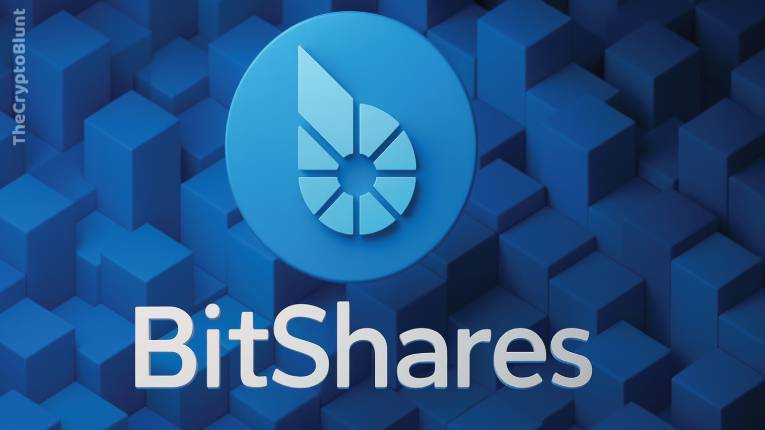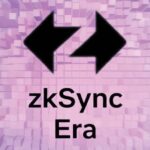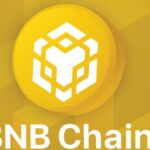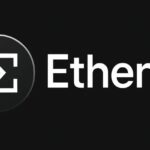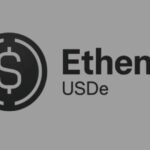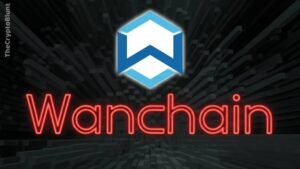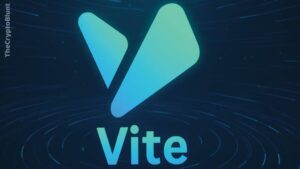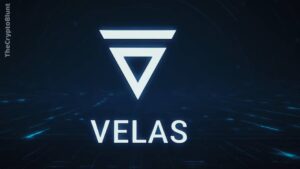When I first dove into the world of cryptocurrencies, I quickly grasped the idea of digital money like Bitcoin. But then I started hearing about projects that aimed to do much more than just facilitate payments – projects that wanted to build entire financial systems on the blockchain. That’s when I discovered BitShares (BTS), a veteran in the crypto space, known for its groundbreaking work in creating a decentralized exchange (DEX) and innovative financial tools long before many of today’s DeFi giants even existed.
For beginners, the term “decentralized exchange” might sound complex, and the idea of “stablecoins” pegged to real-world assets without a central issuer can be baffling. You might wonder, “How can a trading platform operate without a company behind it?” or “What’s the difference between this and a regular crypto exchange?” This comprehensive guide is designed to answer those questions and more. We’ll demystify the core concepts of cryptocurrency, blockchain, and decentralization, explain BitShares’ unique architecture and its ambitious ecosystem, and directly tackle common misconceptions about crypto, empowering you with accurate and trustworthy knowledge.
Let’s embark on this journey to understand BitShares – its pioneering technology, its vision for a truly decentralized financial future, and its enduring contributions to the evolution of blockchain-based finance.
Your Crypto Compass: Navigating the Core Concepts (Foundations for Understanding BitShares)
Before we dive into the specifics of BitShares, let’s establish a clear understanding of the fundamental concepts that underpin all blockchain technology. These are the building blocks you’ll encounter repeatedly in your crypto journey.
- Cryptocurrency: At its most basic, cryptocurrency is digital money secured by advanced cryptographic techniques. Unlike money in your traditional bank account, which is managed by a central bank or government, cryptocurrencies often operate on a decentralized network. This means no single entity holds all the power; instead, a vast network of computers works together to verify and record transactions, promoting transparency and security without intermediaries. BitShares (BTS) is the native cryptocurrency of the BitShares blockchain.
- Blockchain: Imagine a digital ledger that’s not stored in one central location but is distributed across thousands of computers globally, constantly growing. Every transaction or piece of data is bundled into a “block,” and once complete, it’s cryptographically linked (or “chained”) to the previous block, forming an unbroken, chronological record. This ingenious structure ensures transparency, security, and immutability – once data is recorded on the blockchain, it’s nearly impossible to alter or remove, making it highly resistant to fraud. BitShares operates on its own independent blockchain, built on the Graphene toolkit.
- Decentralization: This is the foundational philosophy of blockchain technology. It means that control and power are spread out among many participants in a network, rather than being concentrated in the hands of a single, central authority. This distribution makes the network more resilient to censorship, manipulation, and single points of failure. BitShares is a prime example of a project aiming for extreme decentralization, particularly in its exchange and financial services.
- Consensus Mechanism: Delegated Proof-of-Stake (DPoS): How do all these distributed computers agree on the correct order of transactions and validate new blocks? They use a “consensus mechanism.” Unlike Bitcoin’s energy-intensive Proof-of-Work (PoW) or standard Proof-of-Stake (PoS), BitShares pioneered Delegated Proof-of-Stake (DPoS). In DPoS, instead of all token holders validating transactions, they vote for a limited number of “Delegates” (also called “Witnesses” on BitShares) who are responsible for creating and validating blocks. These Delegates are essentially elected representatives who secure the network. This system allows for very high transaction speeds and scalability while still maintaining decentralization through voting.
- Smart Contracts: Think of these as self-executing digital agreements stored directly on a blockchain. Unlike traditional contracts, which require intermediaries (like lawyers or banks) to enforce them, smart contracts automatically execute their terms when predefined conditions are met. They are crucial for building complex decentralized applications (dApps) like lending platforms, decentralized exchanges, and NFTs. BitShares supports smart contracts (often referred to as “custom operations” or advanced scripting) for its unique financial instruments.
- Decentralized Exchange (DEX): A decentralized exchange (DEX) is a peer-to-peer online marketplace where cryptocurrency transactions occur directly between crypto traders. Unlike centralized exchanges (CEXs) like Binance or Coinbase, DEXs do not hold user funds. Instead, transactions are executed via smart contracts on a blockchain, giving users full control over their private keys and assets. BitShares was one of the first and most prominent DEXs.
- Stablecoins (BitAssets/SmartCoins): A stablecoin is a type of cryptocurrency designed to maintain a stable value relative to a “stable” asset, such as a fiat currency (like the US Dollar or Indian Rupee) or gold. BitShares pioneered its own form of decentralized stablecoins called BitAssets or SmartCoins (e.g., BitUSD, BitEUR, BitGold). Unlike centralized stablecoins (like USDT or USDC) which are backed by reserves held by a company, BitShares’ stablecoins are collateralized by its native BTS token and maintained by a network of market participants, making them inherently decentralized.
What is BitShares (BTS)? A Pioneer in Decentralized Finance
BitShares stands out as one of the oldest and most ambitious projects in the cryptocurrency space, predating many of the concepts now popular in Decentralized Finance (DeFi). It was designed from the ground up as a comprehensive platform for decentralized financial services, with its own highly performant blockchain.
The Genesis of BitShares: Visionary Roots
BitShares was created by Dan Larimer, a prolific blockchain architect also known for co-founding Steem (now Hive) and EOS. It was launched in 2014, a time when Bitcoin was primarily seen as digital cash, and Ethereum was still in its nascent stages. Larimer’s vision was to build a decentralized bank, exchange, and financial platform that would be resistant to censorship and single points of failure. Charles Hoskinson, a co-founder of Ethereum and Cardano, was also involved in the early stages of BitShares.
This early foray into creating a full-fledged DeFi ecosystem on a blockchain was groundbreaking. While some of its terminology and implementation details might differ from modern DeFi, BitShares laid much of the conceptual groundwork for what we now understand as decentralized finance.
BitShares’ Core Philosophy: Decentralized Financial Freedom
BitShares’ primary aim is to provide a complete, decentralized financial system that offers transparency, security, and censorship-resistance without reliance on traditional intermediaries. Its core design philosophy revolves around:
- True Decentralization: Empowering users with self-custody of their assets and direct peer-to-peer trading without needing to trust a central company.
- Decentralized Exchange (DEX): Building an exchange directly into the blockchain, allowing for transparent, fast, and secure trading of various assets without an intermediary holding funds.
- Price-Stable Cryptocurrencies (BitAssets/SmartCoins): Creating a mechanism for users to issue and trade stablecoins collateralized by BTS, providing stability in a volatile crypto market without relying on centralized issuers.
- High Performance and Scalability: Utilizing DPoS to achieve significantly higher transaction speeds and capacity than earlier blockchains, making it suitable for a high-volume financial marketplace.
- User-Issued Assets (UIAs): Allowing anyone to create and issue their own custom tokens or assets on the BitShares blockchain, representing anything from company shares to loyalty points.
- Community Governance: Giving BTS holders the power to vote on network parameters, upgrades, and the election of network operators (Delegates/Witnesses).
Key Technical Aspects of BitShares
- Graphene Blockchain Framework: BitShares is built on the Graphene framework, an open-source blockchain architecture designed for high performance and scalability. Graphene powers several other well-known blockchains, demonstrating its robustness (e.g., Steem, PeerPlays).
- Delegated Proof-of-Stake (DPoS) Consensus: This is the heart of BitShares’ efficiency. BTS holders vote for a fixed number of “Witnesses” (typically around 101-121) who are responsible for creating blocks. These Witnesses are incentivized to perform well and remain honest, as they can be voted out if they act maliciously or underperform. This system allows for very fast block times (e.g., 1.5 seconds) and high transaction throughput, with the theoretical capacity to handle 100,000 transactions per second.
- BitAssets / SmartCoins: These are BitShares’ unique price-stable cryptocurrencies. They are always 100% (or more, typically 175% minimum) backed by BTS collateral locked on the blockchain. Users can create (or “short”) BitAssets by locking up BTS, and they are liquidated if their collateral falls below a certain threshold, ensuring their peg to the underlying asset (e.g., USD for BitUSD). This is a completely decentralized system for stablecoin creation, differentiating it from centralized fiat-backed stablecoins.
- Internal Decentralized Exchange (DEX): The DEX is built directly into the core blockchain protocol. This means order matching and trade settlement happen on-chain, ensuring transparency and immutability. Users retain custody of their funds throughout the trading process, providing a higher level of security compared to centralized exchanges.
- User-Issued Assets (UIAs): The BitShares protocol allows for the creation of new tokens by any user, making it easy to digitize real-world assets or create new digital assets.
- Committee-Based Governance: Beyond Witnesses, BitShares also has an elected “Committee” that manages certain network parameters, such as transaction fees and the number of Witnesses, through a transparent voting process by BTS holders. This provides a robust on-chain governance model.
- Recurring Payments & Scheduled Payments: The protocol supports advanced payment features, allowing for subscriptions or future-dated transactions.
- Referral Program (Lifetime Memberships): BitShares incorporates an affiliate program where users can earn rewards for referring others to the platform, incentivizing network growth and community engagement.
Consider adding an infographic here: “BitShares Core: DPoS, DEX, and SmartCoins – A Decentralized Financial Hub.”
The BitShares Ecosystem: A Decentralized Financial Hub
The BitShares ecosystem revolves around its high-performance blockchain and its suite of integrated decentralized financial services. It’s designed to provide a comprehensive alternative to traditional finance, all operating in a transparent, permissionless, and censorship-resistant manner.
Core Components of the BitShares Ecosystem:
- BitShares Blockchain: The foundational layer, providing the high-speed, low-cost infrastructure for all ecosystem activities.
- BitShares (BTS) Token: The native cryptocurrency that fuels the network. It’s used for:
- Network Fees: Paying transaction fees on the BitShares blockchain (which are typically very low, often negligible).
- Staking/Voting: BTS holders stake their tokens to vote for Witnesses and Committee members, securing the network and participating in governance. This democratic process ensures the network’s resilience.
- Collateral: BTS is used as collateral to create price-stable BitAssets/SmartCoins, forming the backbone of its decentralized stablecoin system.
- User-Issued Asset Fees: Fees for creating UIAs are paid in BTS, incentivizing asset creation on the platform.
- BitShares Decentralized Exchange (DEX):
- Order Book Trading: Users can place limit orders to buy and sell various cryptocurrencies and user-issued assets directly on the blockchain. This includes direct trading of BitAssets against other assets.
- BitAsset Trading: Enables direct trading pairs involving BitAssets (e.g., BTS/BitUSD, BitUSD/BitEUR), offering price stability within the decentralized environment.
- User Custody: Crucially, users always retain control of their private keys and funds. The exchange doesn’t hold user assets in a central wallet, eliminating counterparty risk common in centralized exchanges.
- BitAssets / SmartCoins (e.g., BitUSD, BitEUR, BitGold):
- Decentralized Stablecoins: These are key to the ecosystem, providing price stability within the volatile crypto market without relying on a centralized issuer. They are over-collateralized by BTS and maintained by the network’s robust shorting and liquidation mechanisms.
- Real-World Asset Exposure: They allow users to gain exposure to the value of fiat currencies or commodities (like gold) without ever holding the underlying asset in a centralized manner.
- User-Issued Assets (UIAs):
- Tokenization Platform: Individuals and businesses can issue their own custom tokens on the BitShares blockchain, representing anything from company equity, bonds, digital collectibles, or even loyalty points. This offers immense flexibility for digital asset management and real-world asset tokenization.
- Wallets & Interfaces:
- BitShares Web Wallet: A popular and actively maintained online interface to access the DEX, manage assets, vote for Witnesses, and interact with the BitShares blockchain.
- Desktop Wallets (e.g., BitShares-Core, Beet): Dedicated client software for managing BitShares accounts, offering enhanced security and functionality. Beet is being developed as a standalone key/identity-manager for BitShares, aiming to simplify user interaction.
- Hardware Wallets (e.g., Cypherock X1): For the highest level of security, hardware wallets like Cypherock X1 are compatible with BitShares, decentralizing private keys across multiple components to eliminate single points of failure.
- Third-Party Wallets: Other multi-currency wallets may offer support for BTS, providing a wider range of options for users.
- Witnesses & Delegates:
- Network Security: The elected block producers (Witnesses) who process transactions and secure the network. Their role is critical for the integrity and uptime of the blockchain.
- Community Driven: Their election and performance are governed by BTS holder votes, ensuring a decentralized and accountable network where participants can vote out non-performing or malicious actors.
- Committee:
- Protocol Governance: The elected group of members who manage and propose changes to core network parameters (e.g., fees, block sizes) based on community votes. This provides a transparent and democratic mechanism for evolving the protocol.
- Gateway Providers:
- Fiat On/Off-Ramps (Decentralized style): While not centrally controlled by BitShares, third-party “gateways” allow users to deposit and withdraw fiat currencies or other cryptocurrencies to and from the BitShares DEX. These are trusted entities that hold reserves off-chain to back the tokens they issue on BitShares (e.g., a gateway might hold real BTC and issue “Open.BTC” on BitShares), facilitating broader access to the ecosystem.
- Developers and Community: A global, dedicated community of developers, long-time users, and enthusiasts who contribute to the open-source code, build new tools (like DEXBot for automated trading), and advocate for BitShares’ vision. This vibrant community is key to the project’s longevity and innovation.
Consider adding a diagram here: “The BitShares DEX Flow: User A trades BitUSD for BTS with User B, all on-chain.”
The “Why”: Real-World Applications and Benefits of BitShares
BitShares’ pioneering design offers unique solutions to problems within both traditional finance and the broader crypto space, emphasizing decentralization, speed, and cost-effectiveness.
For Everyday Users & Traders: Financial Control and Access
- Self-Custody (No Central Exchange Holds Your Funds): This is a huge benefit for security. Unlike centralized exchanges where you deposit your funds and trust the exchange not to be hacked or misuse them, on BitShares DEX, you always retain control of your private keys. Your funds never leave your wallet until a trade is executed directly on the blockchain. This eliminates counterparty risk and gives users true ownership of their assets.
- Fast and Cheap Trading: Thanks to DPoS, transactions on the BitShares blockchain are confirmed in just a few seconds (typically 1.5 seconds per block), and transaction fees are extremely low, often fractions of a cent, making high-frequency trading economically viable. This is a significant advantage over high-fee, congested blockchains.
- Access to Decentralized Stablecoins: Users can trade and hold BitAssets like BitUSD, providing stability in their crypto portfolio without relying on a centralized company to hold the reserves. This offers a different risk profile compared to centralized stablecoins, promoting financial independence from traditional banking systems.
- Financial Inclusion: The ability to trade and use price-stable assets with very low fees can benefit individuals in regions with unstable local currencies, providing access to more stable digital alternatives without a traditional bank account. This empowers the unbanked or underbanked to participate in the global economy.
- Transparency: All trades and operations on the BitShares DEX are recorded on the public blockchain, providing unparalleled transparency and auditability. Every transaction can be verified by anyone, fostering trust in the system.
- Global Accessibility: Anyone with an internet connection can access the BitShares DEX and its financial services without needing permission from a bank or government, fostering greater financial freedom and reducing barriers to entry.
- Advanced Account Permissions: BitShares offers sophisticated multi-signature account control, allowing users to set up accounts requiring approval from multiple keys or even other accounts for sensitive operations. This provides robust security options, especially for organizations or families managing shared funds.
For Developers and Businesses: Flexible Asset Creation and High-Performance Infrastructure
- Custom Tokenization (UIAs): Businesses can easily create and issue their own digital assets (UIAs) on the BitShares blockchain, representing anything from company shares, loyalty programs, in-game currencies, or even digital representations of real-world commodities. This offers immense flexibility for digital asset management and opens up new business models for tokenized economies.
- High Transaction Throughput: For applications requiring high-volume transactions (e.g., gaming, social media, supply chain, digital rights management), BitShares’ DPoS blockchain offers the speed and scalability needed to support demanding use cases, reportedly capable of 100,000 transactions per second.
- Decentralized and Robust Infrastructure: Building on a decentralized and community-governed blockchain offers resilience against censorship and single points of failure, crucial for long-term applications and mission-critical services.
- Built-in DEX Functionality: For projects that need to integrate trading capabilities for their tokens, the native DEX functionality of BitShares significantly simplifies development and offers a secure trading environment without the need to build a separate exchange infrastructure.
- Predictable Fees: The low and predictable transaction fees make it easier for businesses to model costs for their blockchain-based services, a stark contrast to fluctuating gas fees on other chains.
- Worker Proposal System: BitShares has a built-in worker proposal system, allowing developers and community members to propose projects and receive funding from the network’s reserve pool (funded by transaction fees) if approved by BTS holders’ votes. This fosters a self-sustaining development ecosystem.
For the Broader Crypto & DeFi Space: Pioneering Innovation and Alternative Models
- Early DeFi Innovation: BitShares’ development of decentralized stablecoins and an on-chain DEX in 2014-2015 significantly predates much of the modern DeFi boom, proving the viability of such concepts. It continues to offer a battle-tested alternative model to newer DeFi platforms.
- DPoS Validation: Its long-standing implementation of DPoS provides a real-world example of this consensus mechanism’s strengths in scalability and governance, influencing many subsequent blockchains.
- Truly Decentralized Stablecoin Model: BitShares’ BitAssets offer a unique, non-custodial model for stablecoins that avoids the centralized risks associated with fiat-backed stablecoins. This is an important contribution to the diversity of stablecoin designs and provides a robust, censorship-resistant alternative.
- Focus on Performance: BitShares’ unwavering focus on high transaction speeds and low fees for financial operations pushed the boundaries of blockchain performance long before it became a mainstream concern.
Dispelling the Myths: Addressing Common Crypto Misconceptions (and BitShares’ Context)
The rapid growth and innovative nature of the cryptocurrency world often lead to misunderstandings and persistent myths. Let’s tackle some of the most common ones, highlighting how BitShares’ design and purpose provide clear counterarguments.
- “Cryptocurrency is only for criminals and illicit activities.”
- Reality: This is a pervasive but largely inaccurate myth. For public blockchains like BitShares, every transaction (including trades on its DEX) is recorded on a publicly accessible and immutable ledger. This inherent transparency actually makes illicit activities more traceable than traditional cash transactions. Law enforcement agencies globally are increasingly sophisticated at utilizing blockchain analytics tools to track illicit funds. While any financial instrument can be misused, the transparent and auditable nature of public blockchains makes it harder for large-scale, untraceable illicit activities to occur compared to traditional cash or offshore banking.
- Context for BitShares: BitShares operates a transparent, public blockchain. All trading activities, asset issuance, and financial operations are recorded and verifiable. While a completely permissionless system cannot prevent all misuse, the transparent and auditable nature of the BitShares blockchain means that any illicit activity leaves a permanent, traceable record. Its design focuses on providing transparent, open, and legitimate financial services, not on anonymity for illegal acts.
- Trustworthiness Principle: “Just as traditional currencies and banking systems can be misused, so too can digital assets. However, the fundamental transparency and immutability of public blockchains like BitShares mean that criminal activity on them often leaves a permanent, traceable record, making it more identifiable than in traditional cash dealings. BitShares’ core purpose is to provide a robust and secure framework for legitimate, decentralized financial services, demonstrating how cryptocurrencies are part of a legitimate and evolving digital economy. We are committed to providing transparent education to show how these technologies can benefit everyone.”
- “Crypto is a scam/Ponzi scheme.”
- Reality: Sadly, the crypto space has indeed seen its share of fraudulent projects, “rug pulls,” and outright scams. However, it is crucial to distinguish between illegitimate schemes and genuine blockchain technology that offers real innovation and utility. A legitimate project solves a real problem, has clear utility for its native tokens, and a sustainable economic model driven by usage, not just by attracting new investors. True decentralized projects are open-source and governed by their community.
- Context for BitShares: BitShares is one of the longest-running blockchain projects, launched in 2014. It is an open-source project with a live, functional blockchain, a decentralized exchange, and pioneering decentralized stablecoins. The BTS token has clear utility for network fees, staking, governance, and collateral for BitAssets. Its value is driven by the utility and demand for its decentralized financial services, not solely on attracting new investors to pay off old ones. Its long operational history, transparent, auditable code base, and community-driven development distinguish it from a short-lived fraudulent scheme.
- Authoritativeness Tip: “When evaluating any crypto project, look beyond promises of guaranteed, unrealistic returns. Does it have a real product or service that solves a problem? Is there a credible, often open-source, development team? What is its track record? For BitShares, its long history as an open-source project, its functional decentralized exchange, its unique BitAssets, and its consistent operation since 2014 clearly demonstrate its legitimacy as a technological innovation, not a scam. Always refer to a project’s official documentation, whitepaper, technical audits, and credible independent reviews to understand its fundamental mechanics and security guarantees. A project’s longevity and active development are strong indicators.”
- “Crypto is bad for the environment.”
- Reality: This misconception primarily stems from the energy consumption of older “Proof-of-Work” (PoW) blockchains like Bitcoin. However, the blockchain industry has rapidly evolved towards significantly more energy-efficient solutions, and the vast majority of new projects are built on these greener technologies.
- Context for BitShares: BitShares utilizes Delegated Proof-of-Stake (DPoS), which is significantly more energy-efficient than PoW. Unlike PoW, which requires vast computational power for “mining,” DPoS relies on a limited number of elected Witnesses who validate transactions by simply verifying them. This process consumes dramatically less energy, as it doesn’t involve complex computational puzzles. Therefore, transacting or using the BitShares network has a very low environmental footprint compared to energy-intensive PoW chains.
- Experience Insight: “When I first encountered crypto, the headlines about energy consumption were a major concern, and rightly so for early blockchain technologies. However, it’s crucial to understand that not all blockchains are created equal in terms of energy use. BitShares, by leveraging the energy-efficient Delegated Proof-of-Stake consensus, operates with a drastically reduced environmental impact. The blanket statement ‘crypto is bad for the environment’ simply isn’t accurate across the board, especially for modern, high-performance DPoS networks like BitShares.”
- “Crypto will replace all traditional money.”
- Reality: While cryptocurrencies and platforms like BitShares offer significant innovations and efficiencies, the idea that they will completely replace all traditional fiat money in the near future is highly unlikely and not the primary goal of most major blockchain projects. Instead, they are more likely to coexist and integrate with traditional financial systems, offering alternative or complementary solutions. Governments and central banks are also exploring their own digital currencies (CBDCs), which suggests integration rather than wholesale replacement.
- Context for BitShares: BitShares aims to provide a decentralized alternative for financial services, including trading and stable value assets. It offers a parallel financial system that is transparent, censorship-resistant, and permissionless. While BitAssets provide exposure to fiat currencies without central bank involvement, BitShares acknowledges the role of traditional finance and aims to offer a robust, competitive, and complementary system. It’s about providing choice, resilience, and efficiency in the financial landscape, not necessarily outright replacement. Many users utilize both traditional banking and decentralized finance for different needs.
Getting Started: A Beginner’s Perspective on Acquiring & Using BitShares (BTS)
If BitShares’ vision of a decentralized financial system, fast trading, and self-custody resonates with you, you’re probably eager to learn how to acquire and use BTS. This information is purely for educational purposes and should not be considered financial, investment, or legal advice. Always remember that security and due diligence are paramount in the crypto world.
- Understanding What You’ll Need:
- Cryptocurrency Exchange (CEX): To initially acquire BTS.
- A Compatible BitShares Wallet/Interface: To access the BitShares blockchain, manage your BTS, and interact with the DEX.
- BitShares Web Wallet (Official/Community Maintained): This is often the most direct way to access the BitShares DEX and your funds. You will create an account on the blockchain directly, using a human-readable name.
- Desktop Wallets (e.g., BitShares-Core, Beet): Dedicated software for more advanced users, offering local control over your keys.
- Hardware Wallets (e.g., Cypherock X1): For maximum security, these devices store your private keys offline.
- Third-Party Wallets: Some multi-currency wallets may offer support for BTS (always verify compatibility and security).
- Acquiring BitShares (BTS) Tokens:
- 1. On a Centralized Exchange (CEX – Recommended for Beginners):
- Major Exchanges: BTS is listed on several centralized cryptocurrency exchanges. Check popular ones like Binance, Gate.io, and others. Listing availability can vary, so always check the exchange’s website.
- Deposit Fiat Currency or another Cryptocurrency: Use the deposit methods available in your region (e.g., UPI, bank transfer for INR) to fund your account. Alternatively, you can deposit other cryptocurrencies like USDT, BTC, or ETH.
- Buy BTS: Navigate to the trading section. Look for trading pairs like BTS/USDT, BTS/BTC, or other available pairs. Enter the amount you wish to buy and execute your order.
- Withdraw to Your Self-Custodial BitShares Wallet: Once you’ve successfully acquired BTS on the exchange, it is highly recommended to withdraw it to your own BitShares-specific wallet (like the official web wallet or a hardware wallet). This is because “not your keys, not your coins” – leaving funds on a CEX means you don’t truly control them. When withdrawing, ensure you select the BTS network specifically to avoid loss of funds.
- 1. On a Centralized Exchange (CEX – Recommended for Beginners):
- Creating a BitShares Account and Storing Your BTS:
- Unlike many other blockchains where you generate an alphanumeric address, BitShares uses human-readable account names (e.g., yourname-USA-bts). This makes it easier to remember and share.
- Steps (General for BitShares Web Wallet):
- Go to the official BitShares Web Wallet URL (verify this from official BitShares documentation or trusted community sources like the BitShares.org website).
- Select “Create Account.”
- Choose a unique account name (e.g., mycoolbtsaccount or USA-investor).
- This is crucial: You will be prompted to save your brain key (a long string of words or a strong password) or a private key file. This is your recovery phrase/private key for your BitShares account. Write this down physically on paper and store it securely OFFLINE in multiple, separate, and safe locations (e.g., a fireproof safe, a secure deposit box). Never store it digitally (on your computer, phone, or cloud storage) unless you understand the advanced security implications and employ strong encryption. Losing this means losing access to your funds permanently.
- Once your account is created and your brain key is securely backed up, you can then send BTS from the exchange directly to your new BitShares account name.
- Using the BitShares Ecosystem (DEX, BitAssets, Voting):
- 1. Access the DEX: Log in to your BitShares Web Wallet using your account name and password/brain key. You’ll see the integrated decentralized exchange interface where you can trade.
- 2. Trading:
- Spot Trading: Buy and sell various cryptocurrencies (e.g., BTC, ETH) and user-issued assets that are “wrapped” or “gatewayed” onto BitShares (e.g., Open.BTC, Open.ETH) directly against BTS or BitAssets (like BitUSD).
- BitAsset Trading: Trade BitUSD, BitEUR, BitCNY, BitGold, etc., directly on the DEX. This allows you to hedge against market volatility.
- Placing Orders: Enter buy/sell orders, and the matching engine (on-chain) will execute them if a counter-party is found. The process is similar to a centralized exchange but happens entirely on the blockchain.
- 3. Creating BitAssets (More Advanced): If you wish to create (short) BitAssets, you’ll need to lock BTS as collateral. This is a more advanced feature and requires understanding the liquidation risks associated with collateralized debt positions.
- 4. Voting for Witnesses/Committee: To participate in the governance of the BitShares network, you can stake your BTS and vote for Witnesses and Committee members. This is essential for the network’s decentralization, security, and future direction. Your voting power is proportional to the amount of BTS you hold.
- 5. Issuing User-Issued Assets (More Advanced): If you are a developer or business, you can use the platform’s tools to create and manage your own custom tokens on the BitShares blockchain. This opens doors to innovative tokenization projects.
- 6. Explore Community Projects: Engage with various community-driven projects and dApps built on the BitShares Graphene blockchain. The ecosystem is vibrant and constantly evolving with new tools and applications.
- 7. Pay for Transactions with BTS: All operations on the BitShares blockchain (trades, transfers, smart contract interactions) will incur tiny fees, which are paid in BTS. These low fees are a key advantage for frequent users.
The Road Ahead: The Future of BitShares
BitShares, while having a long history, continues to evolve, driven by its community and the ongoing relevance of its core features in the decentralized finance landscape. Its future promises ongoing development and adaptation:
- Continued DEX Functionality: Maintaining and enhancing its core decentralized exchange capabilities to remain competitive, focusing on speed, low fees, and security.
- Interoperability: Exploring further bridges and integrations with other blockchain ecosystems to enhance liquidity and asset diversity, allowing seamless flow of assets between different chains.
- Community-Driven Development: As an open-source project, its future relies on the active participation and contributions of its developer community and token holders through the worker proposal system and transparent governance.
- Adaptation to DeFi Trends: While a pioneer, BitShares will need to adapt its offerings to keep pace with the rapidly evolving DeFi space and new financial primitives, potentially integrating with concepts like yield farming or liquidity pools in new ways.
- Stablecoin Resilience: Proving the long-term robustness and reliability of its decentralized BitAsset stablecoin model, especially in diverse market conditions.
- Enhanced User Experience: Continuous improvements to user interfaces, wallet functionalities, and onboarding processes (like the Beet wallet) to make the ecosystem more accessible to a broader audience.
In conclusion, BitShares (BTS) holds a significant place in cryptocurrency history as a true pioneer in decentralized exchanges and a comprehensive blockchain-based financial system. Its innovative Delegated Proof-of-Stake consensus, its integrated DEX, and its unique decentralized stablecoins (BitAssets) set it apart, demonstrating a powerful vision for financial freedom and self-custody. By understanding its foundational concepts, its unique architecture, and its enduring ecosystem, you are now equipped to appreciate its contributions to the world of decentralized finance. Remember to always prioritize security and continue your learning journey to explore the possibilities that BitShares offers for a more open and transparent financial future.

